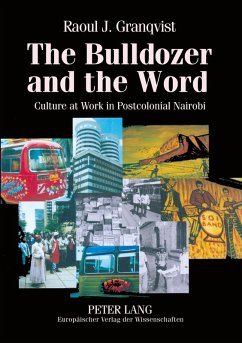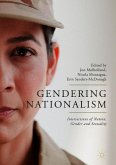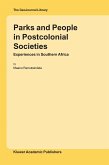This book examines the operating of cultural work in postcolonial Nairobi from the view that it drives modernity, survival and processes of empowerment. It depicts a city of global and spatial aspirations, divided by a past that transcends its present. It is a neo-colonial and acquisitive city; Western cultural institutions dominate the marketplace. An associative aspect is the gendered city space (streets, bars, pubs), which is overwhelmingly masculine. The book demonstrates that women's marginalisation impacts variously on the city's texts, its fiction, theatre, and the iconography of the Matatu vehicle. The major theme of the book is the struggle for cultural recognition and authority. Strategies of social and political accommodation coalesce both creatively and antagonistically in this formulation of Kenyan self-identification.
«This bulldozer of a book clears a lot of new ground, permitting a remapping of the cultural contours of postcolonial Nairobi. Included in the survey are Western institutions, indigenous fiction and drama, and ideological, moral and demographic dimensions of the local transport industry. By ranging so widely, Granqvist guides us to a fuller understanding of the complex cross-cultural dynamics of a modern African city.» (Bernth Lindfors, Professor Emeritus of English and African Literatures at the University of Texas at Austin)
«Whilst at times slightly fragmented, overall, this is a highly accessible book that makes an excellent contribution to Nairobi's recent history, whilst illustrating the value of doing cultural geography in developing world contexts.» (Denis Linehan, Cultural Geographies)
«Whilst at times slightly fragmented, overall, this is a highly accessible book that makes an excellent contribution to Nairobi's recent history, whilst illustrating the value of doing cultural geography in developing world contexts.» (Denis Linehan, Cultural Geographies)








